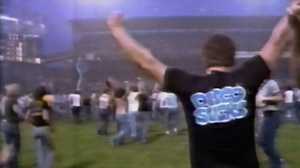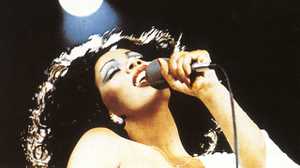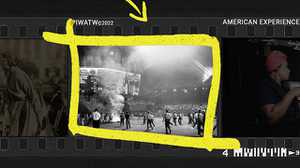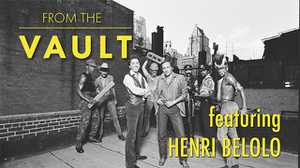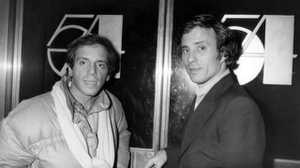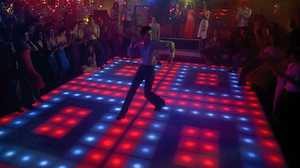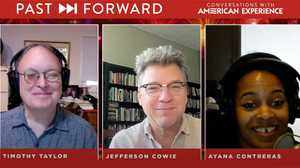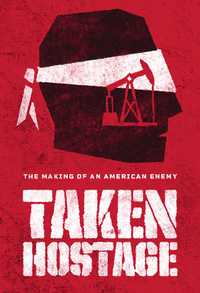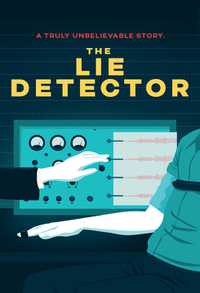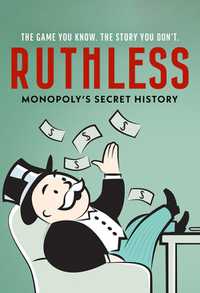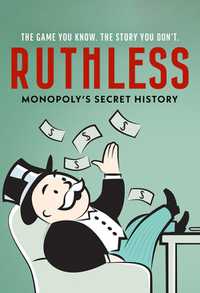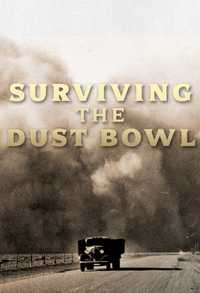Written by Rushmore DeNooyer
Opening Sequence from “Saturday Night Fever:” John Travolta walking through Brooklyn as “Stayin’ Alive” plays…
Felipe Rose, Disco Artist: Saturday Night Fever, the soundtrack, Stayin Alive, you know, that walk of John Travolta wearing his bell bottoms with his platform shoes; that walk with the song is really what catapulted disco right over the top, made it so mainstream around the world.
Dave Logan, WLUP-FM Promotion Director: Disco was everywhere at this time. You were getting constant messages that you had to look a certain way.
Dave Logan, WLUP-FM Promotion Director: A lot of people just felt like they were being excluded because they weren't cool enough to get into the disco.
Archival Steve Dahl: I don’t think we need to feel stupid because we can’t be part of this new trendy thing that’s happening, when it’s ridiculous.
Ayana Contreras, Cultural Historian: There was a before, and there was an after.
Archival newscaster: "Fifty thousand people showed up at Chicago's Comiskey Park. Many had come for Disco Demolition night...
Woman in crowd: “Disco sucks!”
Steve Dahl: “You don’t like The Village People?
Crowd chanting Disco sucks! Disco sucks! etc, etc
Jim Hankes, Chicago Resident: They had the idea of blowing up these disco records, and I thought that that is going to be so cool.
Archival Baseball announcer Jimmy Piersall: “I hope they don’t let you people see what’s going on here at Comiskey Park; one of the saddest sights I’ve ever seen in a ballpark in my life.”
Ayana Contreras, Cultural Historian: There were some people who really were anti-disco, and in the aftermath of Disco Demolition, a lot of folks sort of wash their hands of the whole scene.
Archival Steve Dahl: We have to destroy all disco, it’s our job.
Felipe Rose, Disco Artist: Radio stations stopped playing disco music – overnight.
Linda Clifford, Disco Artist: This whole disco hate and disco demolition, it was a nightmare for many of us in the industry, and for the people who enjoyed the music.
Jefferson Cowie, Historian: To the degree we're looking for the origins of our time, I think we're looking for those moments, those divides, that help to explain how we got where we are.
Adam Green, Historian: This is an early episode in what we call the culture wars. People were fighting over what is the kind of music that should be valued.
Jefferson Cowie, Historian: Disco had so much meaning. Music matters to people quite deeply. And to threaten that is to threaten who they are -- on either side of this divide.
They’re not gonna shove it down our throats.
We rock n’ rollers will resist.
And we will triumph.
Archival Steve Dahl: They’re not gonna shove it down our throats. We rock n rollers will resist – and we will triumph!
February, 1975
Archival Walter Cronkite: Seven-and-a-half million workers unable to find jobs. That’s the highest unemployment rate since 1941.
Rich King, Sportscaster: Everything changed. We're running out of gas, all kinds of economic problems, the Vietnam war has ended poorly. “Malaise” was perfect description of the Seventies.
Daphne Brooks, African American Studies Scholar: In the early Seventies, on the one hand you have legislated civil rights, and yet you have racial conflict. You know, I could see kids my age in Boston just trying to go to school, even as we were being told that we are now equal as African Americans.
Archival Richard Nixon: I shall resign the Presidency effective at noon tomorrow.
Jefferson Cowie, Historian: I think in many ways the Seventies are the roots of our own time. All the questions that emerged in the 1960s about race, about gender, about sexuality, those answers are being fought over in the 1970s. But in the 1970s, it's a completely different economic and political climate than it is in the 1960s.
Adam Green, Historian: The Seventies is really important to look at in terms of the ways in which people were processing their worry, their anxiety, their insecurity.
Archival Jimmy Carter: The erosion of our confidence in the future is threatening to destroy the social and political fabric of America.
Jefferson Cowie, Historian: This is particularly profound for people in what's now called the Rust Belt.
Archival: Already, 300,000 car workers are out of a job…
Jefferson Cowie, Historian: Pittsburgh, Milwaukee… Chicago is seeing hollowed out spaces, Detroit is falling apart. You know, these major industrial centers are no longer what they once were.
Archival Interviewer: Is this the first time you’ve been unemployed recently? Unemployed worker: This is the first time.
Adam Green, Historian: So there’s a sense that there's just this extreme situation of insecurity.
Archival Unemployed Worker: I’m at the pinnacle of absolute desperation, or I would not be here.
Jefferson Cowie, Historian: The psychology of the 1970s is both a sense of loss and a sense of unknowing. What terrible thing is going to happen next?
Adam Green, Historian: A young white male, he's seeing the closing of these plants and he's saying, well, what's gonna be my future? Am I gonna actually have a job?
Jefferson Cowie, Historian: People are panicking about their place in the world. It's really kind of a decade of fear in a lot of ways.
Ray Smith, NYC Nightclub Patron: You know, with the trauma and the darkness of those early Seventies years, there was a clamoring for something light, something to happen. It was disco.
Adam Green, Historian: What was disco? Disco predominantly appeals to people who want to dance to music, as opposed to music that you listen to.
Joe Shanahan, Chicago Club Owner: Dance music is music that makes you want to move. Whether you're just tapping your foot or while you'll get up off your chair and begin to move. Body music.
Dave Logan, WLUP-FM Promotion Director: Dance music has never really gone out of style. Things come and go; dance music stays consistent because people like to feel the beat.
Linda Clifford, Disco Artist: Whether it's disco, ballet, modern jazz, any type of dance, there is that feeling of being completely free and able to do whatever you wanted to do on that dance floor.
Adam Green, Historian: Dancing, and dance-centered nightclubs, were so important to African Americans, to Latinx communities, but also particularly to gay communities, LGBTQ communities. One of the reasons why is there are relatively few social and cultural spaces where these people who are discriminated against and marginalized can go out, socialize, and feel safe.
Daphne Brooks, African American Studies Scholar: For Black and brown, LGBTQ communities, where can you find the space to engage in kind of everyday dreaming? And to be able to collaborate in that dreaming with dance floor partners?
Gay Dance Clubs
Ray Smith, NYC Nightclub Patron: It was treacherous to be gay in the Sixties.
Jefferson Cowie, Historian: To be gay in the 1960s is to be underground, completely hidden from mainstream America. You have a subculture; you have your own bars, your own enclaves.
Ray Smith, NYC Nightclub Patron: I moved to New York City in 1966. And one of the first things you did when you moved to New York was you went to clubs. And it was about dancing. The whole club scene was about dancing.
Daphne Brooks, African American Studies Scholar: Disco was finding joy in your body. So it made so much sense that in the Seventies you would see this kind of turn towards pleasure. And disco became the kind of sonic accompaniment to those joyous revolts against patriarchy and homophobia.
Adam Green, Historian: People wanted experiences where they were transported out of what they felt was a constrained condition of existence and identity.
Ray Smith, NYC Nightclub Patron: A few years after I moved to New York, the Gay Activists Alliance purchased an old retired firehouse in Soho. It was the first club owned outright by gays. And it was, like, ours. We owned it. We felt free.
Rise of the DJ
Ray Smith, NYC Nightclub Patron: I remember the first time I saw a DJ playing records. You could say could you play so-and-so, and they would play the record.
Ayana Contreras, Cultural Historian: A lot of the initial clubs where disco started were Black clubs and gay clubs. And really crucial DJs in early disco were gay people. So, I mean, I don't think that you could say anything other than they’re inextricably linked.
Dave Logan, WLUP-FM Promotion Director: Much of disco did come in from underground, and the DJs in the clubs were relentless at trying to find new sounds and new music.
Ayana Contreras, Cultural Historian: They would find songs with that very specific beat, that was made for the dance floor.
1972
Manu Dibango, “Soul Makossa” (1972)
Joe Shanahan, Chicago Club Owner: There was a club in New York called The Loft, an underground gay, basically Black club. From The Loft we learn about a very important record called Soul Makossa. And Soul Makossa was this African sort of beat.
Ayana Contreras, Cultural Historian: Soul Makossa literally bubbled up from the underground. A Brooklyn record store called African Record Center imported that record, and it became a hit in the club. And then the radio picked it up. And so, all over the United States of America, people are listening to this amazing combination of jazz and funk and African rhythms.
Joe Shanahan, Chicago Club Owner: DJs were using multiple turntables, to create an extended mix because the records back then, they were only three minutes and 50 seconds. They would turn it into a 10-minute version. So this becomes an art in itself; a turntable becomes as important as a guitar.
Daphne Brooks, African American Studies Scholar: Those extended play records, they're extended for a reason, right? Let's extend the euphoria as far as we can, which is why we should also think of disco as a kind of secularized form of gospel.
Adam Green, Historian: This is something that many, many people talked about in terms of going to clubs at this time: that it almost felt like you were going to church. It almost felt like you were participating in something equivalent to religion. The music is affirming your right to be part of that community; that's what was so powerful about it.
Ray Smith, NYC Nightclub Patron: The whole thing about going to The Firehouse was your community. I mean, I don't use that word often, but that's really what it was. Your community.
Disco Emerges From the Underground
Adam Green, Historian: Disco had originated in New York, but there was always a kind of transfer between New York and Chicago. And there's like a scene in Chicago that's different from the scene that existed within New York.
Ayana Contreras, Cultural Historian: In Chicago there was the Sock hop, which was a non-traditional space where people would play records, often in church rectories or schools.
DJ Wayne Williams, Club DJ: I started DJing in 1973, in the basement at my sister’s boyfriend’s house. And I just loved that feeling, when people liked and reacted to the music that you chose. Then, the first time I heard soulful disco, oh it moved me, it changed my life.
DJ Wayne Williams, Club DJ: At the time you would only hear that music in Black gay clubs. And I said I'm gonna bring that disco music to my peers. You know, people were very homophobic back then, I mean very homophobic. But I kept on. And it was the girls who, took the first step you know, they were like, okay, you know, I'm feeling this, right? The guys kind of resisted in the beginning at first, but you know, where there're pretty girls on the floor, you know, guys are going to follow.
Darlene Jackson, Club DJ: It started in Black and gay clubs. And then the clubs get bigger and bigger. And then people are bringing along their sisters and their cousins and their aunts, and people start to see that this is something that everybody kind of likes and can get into.
DJ Wayne Williams, Club DJ: And then disco caught on period, even commercially, by the middle of the Seventies, in the popular straight crowd.
Archival Disco Music Producer Jeff Lane: “As far as disco music is concerned, I think you could probably say 99.9 per cent of the times it was either Black-owned music, Black-produced music, Black acts doing it.”
1973
1974
1975
1976
1978
Music Montage:
“Love Train” – The O’Jays – 1973
“Lady Marmalade” – LaBelle – 1974
“That’s the Way I Like It” – KC & the Sunshine Band – 1975
“Love to Love You Baby” – Donna Summer -- 1976
“I Will Survive” – Gloria Gaynor
Disco Empowers Girls & Women
Gloria Gaynor, “I Will Survive” (1978)
Ayana Contreras, Cultural Historian: I would argue that a lot of disco did have a feminist angle, that universal connection of power and strength. One great example would be “I Will Survive by Gloria Gaynor.
Linda Clifford, Disco Artist: Disco made women feel stronger. The freedom to not wear a bra, I mean, come on! To go out and go dancing and not necessarily go with a date, but maybe meet someone after you get there. I mean, those things were happening because of disco.
Felipe Rose, Disco Artist: They could be as aggressive as a man, and just act with wild abandonment and enjoy themselves. You know you're hot; why not be dancing and sweating and have three or four guys grabbing you, flipping you upside down?
Daphne Brooks, African American Studies Scholar: My sister loved all kinds of popular music. I think for her as a teenage Black girl, disco was about spectacle, and glamor, and choreography, a new kind of unbridled freedom with Black folks at the center of it.
Darlene Jackson, Club DJ: I loved disco, loved it; I wanted to be a disco dancing queen <laugh>. My brothers and sisters all liked disco and would go out at night and I couldn't go with them. And I would cry.</laugh>
Diane White, Photographer: My sister Maria, who I wanna call the disco queen; she dressed disco, her hair was disco, her entertainment was disco, her friends were disco, she was disco.
Darlene Jackson, Club DJ: My sisters Yvonne and Carolyn, the ritual of them getting dressed and getting ready to go to the club, <laugh> was something that was exciting for me. They would turn on the radio, and they would be deciding what shirt they were gonna wear. And long jeans or bell bottoms, and then heels, crazy heels, right? Like platform shoes. Seventies fashion, you know?</laugh>
Diane White, Photographer: Your hair must be perfect. And at that time, it was the Farrah Fawcett style of hair, the tubes and the wings. So you’d have to have it just done perfectly. And it was really about how you looked, and you checked yourself in every mirror.
Darlene Jackson, Club DJ: You could assert yourself as a woman. Women were unabashed about their sexuality and wanting to go and dance and be themselves. And so disco was a representation of that.
Daphne Brooks, African American Studies Scholar: I don't think it's a coincidence that disco exploded at the moment that it did, right? If we think about the long Civil Rights movement, Black power, feminist liberation, LGBTQ Liberation, all of those movements are swirling around and informing disco.
Jefferson Cowie, Historian: The conundrum of disco is that it is a sense of liberation for so many people, for gay people, for people of color. But what is liberation for one group then becomes oppression, or the perception of oppression for another group.
Adam Green, Historian: To the working class straight white male, you know, disco on the far South Side, or in the Bronx is one thing. But when disco goes to a place like Studio 54, with a velvet rope outside, that's gonna breed a lot of resentment. It's the sense that these people who we were told before were inferior to us, now enjoy social privileges that we can't enjoy.
Studio 54
Studio 54 opens in New York on April 26, 1977
Felipe Rose, Disco Artist: There was a new club opening up and they were looking for dancers. So of course I show up, all in my tribal native gear, because my dad is a Native American and my mother's Puerto Rican and Italian, so I'm biracial. So they called me throughout New York, Felipe Rose, the native – not native, they would say “Indian” back then – the “Indian dancer-percussionist,” because I would wear sleigh bells on my ankles. So I was hired to perform at Studio 54.
Felipe Rose, Disco Artist: When that club hit, everyone just lost their minds.
Archival: “It’s three in the morning in Manhattan, and still at Studio 54, people crowd the doors, hoping to get in.”
Felipe Rose, Disco Artist: So there's a frenzy outside now.
Archival: “But first they have to win the approval of the owner, 28-year-old Steve Rubell.”
Felipe Rose, Disco Artist: So Steve Rubell, he had a thing where he would say, “yes, no, you can stay, you can go.” Imagine turning away people cuz they didn't look the part?
Archival Steve Rubell: “No, you’re not shaved, there’s no way in a million years you’re gonna get in.”
Felipe Rose, Disco Artist: And the thing is, the rejection just made them come back more.
Archival: “Most people don’t make it, but that doesn’t stop them turning up night after night.”
Adam Green, Historian: You know, the idea that a doorman looks at you at the door and says, you can go in, you can't go in. To the working class guy who goes to Comiskey Park, the guy who’s wondering how he's gonna make a living -- to that guy, that doorman outside the club is a sign of exclusivity and elitism.
Jefferson Cowie, Historian: There’s a sense of decadence. People are partying and doing drugs, and trying to get into Studio 54, when the rest of the country is feeling this narrowing sense of despair. You're sort of partying through the apocalypse. And blue-collar people, middle class people are feeling that as an attack on their sensibilities.
Adam Green, Historian: That's gotta make you angry. And you know, that would breed more and more of a sense that those people think way too much of themselves and they need to be taken down a notch.
Linda Clifford, Disco Artist: While disco was really hot and happening, there were producers, record companies who wanted to get in on this disco thing because they saw it as a vehicle to make a ton of money.
Archival: In 1978 disco record sales were over 50 million dollars.
Felipe Rose, Disco Artist: The late producer Jacques Morali, he wanted to put a group together using male stereotypes, you know, the biker with the big mustache, and then the construction worker, and the cowboy. And he said “you're going to be in this group.” And I thought, “okay.” And he said, “it is going to be the new Village People.”
Felipe Rose, Disco Artist: I rolled my eyes up at them and I said, this is such a stupid idea <laugh>. I said the same thing about YMCA too -- another stupid idea, are you serious? </laugh>
Saturday Night Fever
1977
Archival radio audio: …two great records this morning, two very very well known artists and we’ll have them special for you…
Saturday Night Fever is released December 12, 1977
Jefferson Cowie, Historian: Saturday Night Fever, I think surprises everybody by its scope, its scale, and its power.
Ray Smith, NYC Nightclub Patron: I remember him with the paint can, and that song, walking down the street, it was so well done.
Jefferson Cowie, Historian: Everyone responds. It's, it's enormous. Soundtrack is enormous, the movie's enormous.
Dave Logan, WLUP-FM Promotion Director: The BeeGees are doing their greatest work. John Travolta has emerged as a mega star. Disco is very much in the mainstream.
Archival: “I’ve noticed a lot more would be John Travoltas; and the Hustle has appeared from nowhere, everybody’s attempting to do it.”
Ray Smith, NYC Nightclub Patron: Watching him dance was, I mean, it was pure pleasure. I mean, how can you resist John Travolta dancing?
Ayana Contreras, Cultural Historian: Saturday Night Fever follows that great American “make yourself out of nothing” chronology, right? Put on a white suit and you’re somebody suddenly.
Archival dance lesson: “...now back, two, three, that’s it…”
Dave Logan, WLUP-FM Promotion Director: Disco was everywhere.
Archival dance lesson: “Down and lift, and down and lift, and down…”
Dave Logan, WLUP-FM Promotion Director: It was all pervasive.
Archival: “Disco 92; according to the ratings, it’s the most listened-to radio station in the country.”
Lee Abrams, Media Consultant: There were a lot of radio stations that all of a sudden wanted to get on the disco bandwagon.
Archival Casey Kasem: It’s moving toward 40% of the radio stations in the country are playing disco.
Intro Steve Dahl
1978
Archival Steve Dahl on the radio: “…good morning Mouseketeers, 7:51 WDAI 94.7 with Steve Dahl and company.”
Dave Logan, WLUP-FM Promotion Director: Here in Chicago we had a rock station called WDAI.
Paul Natkin, Photographer: They played AC/DC, Aerosmith, Rolling Stones, you know.
Archival Steve Dahl on radio: “...a minute before 8 o’clock WDAI 94.7”
Diane White, Photographer: So I listened to Steve Dahl when he would come on. And he was one of the earliest shock jocks, where you tuned in just because he was so spontaneous.
Archival Steve Dahl on radio: “My wife’s out of town you know. Before she left she said to have a meaningful affair with someone.”
Diane White, Photographer: And you'd be like, can you believe what he just said?
Paul Natkin, Photographer: Steve would do these events, like he did a food drive on Christmas Eve. Steve was dressed in a Santa Claus suit, and he gets done and finds out that the radio station was changing their format the following Monday, and going disco -- no more rock and roll.
Paul Natkin, Photographer: And he drove home to his new house that he had just purchased, to see his wife, with no job, on Christmas Eve.
Diane White, Photographer: He had lost his job to disco. And that infuriated him.
Dave Logan, WLUP-FM Promotion Director: We grabbed him immediately and said, Come on over here. We're building a rock station called The Loop, WLUP. You'll be the perfect morning man for us.
Lee Abrams, Media Consultant: The Loop was just a hard, in your face, rock and roll station.
Archival WLUP ad: “Rock on Chicago!”
Lee Abrams, Media Consultant: Chicago was the “hog butcher of the world, player of railroads,” and we wanted the Chicago station to have that vibe.
Archival WLUP ad: “Rock on Chicago!”
Lee Abrams, Media Consultant: It wasn’t The Loop, it was The Loop. And Steve was a smash.
Archival Steve Dahl fans: He’s outrageous… He’s the greatest, he will be, and he, you can’t get any hotter than Steve Dahl.”
Garry Meier, WLUP-FM DJ: Steve was working at another radio station, they changed formats from rock to disco, and I think he felt betrayed that they were just glamming onto some fad. And he was pretty bitter about it.
Archival Steve Dahl: “…we have to destroy all disco, it’s our job.”
Paul Natkin, Photographer: I don't think he hated disco, but he hated what disco stood for.
Lee Abrams, Media Consultant: Disco was about electronic music; disco fans liked the clubs where if you didn't look good enough, you couldn't get in. And the disco crowd was more about this sort of elite lifestyle; disco was about dressing up.
Lee Abrams, Media Consultant: Rockers loved big concerts, real drummers, real guitar players; rock was about jeans and a T-shirt. Rock was about listening, listening high perhaps. Rockers were just angry at disco cuz they felt sort of threatened by it.
Archival Steve Dahl band: “Do you think I’m disco cuz I spend so much time blow drying out my hair…”
Jefferson Cowie, Historian: I think a lot of this is the question of masculinity. You know, there's a lot of talk about polyester, and blow-drying hair, and gold chains, and this sort of feminization of men. And this was a source of tremendous fear and anxiety to a lot of straight white males.
Adam Green, Historian: Disco brought you into contact with the non-straight world. And the question of what it means to be a man is going to be a really, really intense point of conflict.
Archival Steve Dahl: “Long live rock n roll!”
Lee Abrams, Media Consultant: Rockers, if you don't like their music, you suck. And if you didn't like disco, well, disco sucks.
Dave Logan, WLUP-FM Promotion Director: Pretty soon that phrase came up a lot.
Archival: I hate disco… I think it sucks, man… Disco sucks… It’s a plastic place, made up of plastic ladies, plastic men…
Anti-Disco Backlash Begins
Ayana Contreras, Cultural Historian: I think anytime something gets commodified it becomes less popular ultimately because of over-exposure.
Archival: Potamkin Cadillac commercial “You’ll catch the fever at Potamkin, with 1979 Cadillacs” …the “Disco Body Shaper…” VO: “Disco has grown to a 5 billion-dollar a year business…”
Ayana Contreras, Cultural Historian: With the commodification of disco, it’s sort of this very corporate machine-sounding music.
Joe Shanahan, Chicago Club Owner: It becomes mass produced. Everything becomes a disco beat.
“Ethel Merman Goes Disco” (1979)
Archival: Ethel Merman singing “Alexander’s Ragtime Band”
Darlene Jackson, Club DJ: Everything is becoming a little bit kitschy, like Ethel Merman making a disco album.
Joe Shanahan, Chicago Club Owner: You've got a ridiculous record like Disco Duck.
Archival: “Disco Duck”
Ayana Contreras, Cultural Historian: It was a natural thing that eventually disco would have a backlash.
Disco Demolition: The Plan
1979
Archival radio audio: “...in baseball the White Sox blew a 5-1 lead and ended up losing to the Baltimore Orioles 8-7 last night. But the Cubs beat the Giants 3 to 2 in San Francisco…”
Garry Meier, WLUP-FM DJ: Mike Veeck, who was running promotions at White Sox Park, he thought it'd be a good idea to put us in the ballpark between a double header.
Paul Natkin, Photographer: It’s FM 98. So the tickets were 98 cents. And you have to bring a disco record. And we'll put 'em all in this big metal bin, roll it out into center field in between the games, and the pyrotechnics guys would set off explosions underneath the records. And the crowd would go crazy, they'd roll the thing off the field, they'd play the second game. No big deal.
Diane White, Photographer: Records were gonna be blown up with dynamite!? A lot of young people were just like, I have to be there.
Jim Hankes, Chicago Resident: The evening before Disco Demolition, we were having dinner. And my dad said, What are you doing tomorrow? And I said, Oh, just the usual hanging out. And he said, Well let me tell you what you're not doing; you are not going to the Sox game. And I was like, what do ya mean? There's a DJ, he's gonna be blowing up records, people are gonna be drinking. It’s just, it’s not good – alcohol, records, fireworks. You're not going -- not going. I said, Okay -- not going. (pause) I couldn't wait to go! (laugh).
Divided City -- Neighborhoods
Archival: radio chatter
Adam Green, Historian: I think, in a sense, the fact that Disco Demolition Night happened in Chicago seems like it was made to order. One of the reasons why you would expect it to happen in a place like this was that Chicago was a social and political battleground.
Ayana Contreras, Cultural Historian: Each neighborhood really has its own identity. In one place, all the signs would be in Polish, cross the street and all of the signs would be in Spanish, or would talk about a soul food restaurant. The demarcation point lines are very, very clear.
Voice of Garry Meier
Garry Meier, WLUP-FM DJ: North of the Chicago River is a whole different section of the city, than south. When you cross the river, things change. So growing up on the south side, it was saying I'm blue collar, a regular person; north side, oh, we're a little more elite. And then you have two baseball teams, north side, south side.
Rich King, Sportscaster: You cannot be for both teams. It's verboten, you're considered a weak, wishy washy. You're either a White Sox fan or you're a Cubs fan. I grew up near Comiskey Park, so I grew up as a White Sox fan.
Diane White, Photographer: The south side, Comiskey Park, we have to talk a little bit about Bridgeport too, because that neighborhood was very white, it was very Irish. A lot of the kids that went to disco demolition were from the neighborhood.
Ayana Contreras, Cultural Historian: Bridgeport was sort of like a sundown town neighborhood, where it was evident that you were not supposed to be there after dark if you were a Black person. That was just not a place that you wanted to be.
Darlene Jackson, Club DJ: You would hear stories that Blacks weren't welcome. And so, aside from the fact that Comiskey Park was there, you really weren't going to spend time in Bridgeport.
Dave Hoekstra, Journalist: There's some institutional racism, probably, around Comiskey. And I always wonder about what kids are taught living there, how that type of thinking might be handed down. But it's, each case is different, each family handles that differently.
Jim Hankes, Chicago Resident: My dad was not, back then and to this day, he's not very accepting of other races. He didn't like some of the disco music because there were Black people playing it.
Jim Hankes, Chicago Resident: But my mother loves Nat King Cole. “Unforgettable,” her favorite song of all time. Sammy Davis Jr, no. Couldn't listen to it cause he was Jewish; my dad, anti-Jewish. That’s just the way it was; you grew up where you grew up, and you go this is normal.
Adam Green, Historian: It's worth remembering now that in 1979, when the disco demolition night takes place in Comiskey Park, the economy and economic opportunities for people who don't have college education is actually shrinking. The city is changing because of things that have to do with the economy and politics; it's not changing because of disco music. But if Steve Dahl says that he's been screwed by disco, it gives permission to other people to say, you know what? I've been screwed too.
Jefferson Cowie, Historian: For gay people, people of color, the discotheque is a place of liberation; it's a place of freedom, it's a place to be amongst your own. As that music becomes more corporate, it's taking over other formats, I think a lot of these kids are feeling that as an attack on their sense of privilege, their sense of ownership of the culture. And so the line of the culture war cleaves on rock versus disco.
Disco Demolition Night
Archival: singing national anthem
Paul Natkin, Photographer: The Detroit Tigers were the worst team in baseball that year. The White Sox were the second worst team in baseball that year. So they figured maybe we'll draw an extra 5,000 people.
Archival: singing “Take me out to the Ball game”
Nancy Faust, Organist, Chicago White Sox: I'm Nancy Faust. I'm probably best known for providing music for baseball games, specifically the Chicago White Sox, for 41 consecutive seasons.
Archival: “Hello sports fans”
Nancy Faust, Organist, Chicago White Sox: I knew the point of the promotion was to blow up disco records, but I just did my thing. I'm sure I included many disco songs.
Archival: “Hello again everybody, Harry Carey and Jimmy Piersall from Comiskey Park, twi-night double header. And the theme song seems to be Disco Sucks.”
Dave Logan, WLUP-FM Promotion Director: By about the third inning, there's a lot of people outside trying to get in.
Diane White, Photographer: This crush of people started coming in any way they could enter, including climbing over the chain link fence gate.
Archival: “This place is jammed…”
Dave Logan, WLUP-FM Promotion Director: By the seventh inning there wasn't an empty seat in the stadium.
Archival: “We may have the year’s biggest crowd.”
Dave Logan, WLUP-FM Promotion Director: It was like, whoa, this is big!
Archival: “Tonight they filled this ballpark.”
Paul Natkin, Photographer: Rather than 5,000 people, 50,000 people showed up. And there were still 20,000 people waiting out on the sidewalk, trying to get in.
Archival: “The evening delayed again because of these records. Big rock and roll crowd.”
Dave Logan, WLUP-FM Promotion Director: So about the beginning of the eighth inning, we go down to the tunnel, getting ready to go out onto the field to do our thing.
Archival: “He struck him out and the ball game is over.”
Voice of Garry Meier, WLUP-FM DJ: We're gonna get on this army jeep, and go out onto the field between games. Our fans just erupted because this was what they came for. They didn't give a damn about the baseball game.
Paul Natkin, Photographer: They got in for 98 cents, so they had a lot of extra money in their wallet, so rather than a beer or two, they had four or five. And they decided it would be really cool to start throwing beers at us.
Garry Meier, WLUP-FM DJ: We’re getting doused with beer; it was like, we gotta do that, we gotta let off this steam, this is why we came here and we're gonna blow up these records, and…
Archival crowd: “Disco sucks, disco sucks”
Archival Steve Dahl: “Please welcome The Village People!” (booing) “What? You don’t like The Village People? How ‘bout the Bee Gees?” (booing) Okay, listen – I’m gonna blow up the records real good… one, two three.”
Dave Logan, WLUP-FM Promotion Director: And then… Boom!
Archival Steve Dahl: “That blowed up real good!”
Jim Hankes, Chicago Resident: This big huge explosion just, like reverberated, it was so loud and it blew a big hole in the field.
Paul Natkin, Photographer: We were supposed to then get in the Jeep, and Steve would wave, crowd would go crazy, we'd go back through the tunnel, and that would be it.
Dave Logan, WLUP-FM Promotion Director: We drive down into the tunnel to get off the field, a lot of the security guys ran down with us.
Jim Hankes, Chicago Resident: And then, all of a sudden people started running on the field.
Archival news reporter: “The fans are now streaming off the field in great numbers.”
Jim Hankes, Chicago Resident: Nobody could stop ‘em.
Archival: “I hope they don’t let you people see what’s going on at Comiskey Park. One of the saddest sights I’ve ever seen at a ballpark in my life.”
Dave Logan, WLUP-FM Promotion Director: People just kept pouring over the wall, like a bathtub overflowing.
Archival: “Will they call the game, the second game, or will they forfeit it?”
Jim Hankes, Chicago Resident: So we joined in. We ran on the field too. I slid into third base, acting like I'm in the pros, and I run…
Archival: “Some of these records are being thrown high into the air and they’re going to strike people on top of their head.”
Jim Hankes, Chicago Resident: And I got hit in the leg in the calf with a flying album and it cut the back of my leg open.
Archival Bill Veeck: “Let’s clear the field.”
Garry Meier, WLUP-FM DJ: And on the scoreboard they put, “Please return to your seats,” as if these people are looking at the scoreboard, would read that, and go back to their seat.
Archival crowd: “Back to your seats, back to your seats, back to your seats.”
Nancy Faust, Organist, Chicago White Sox: They were rock fans, really didn't care about baseball. And I’m sure there was a large segment of fans that were in their seats that were disgusted that we had missed the second game.
Archival Steve Dahl: “That blowed up real good”
Darlene Jackson, Club DJ: My parents were Sox fans, and sitting there in front of the TV with my Dad experiencing this, yeah, he was super disappointed by it. But also not surprised because Comiskey is smack dab in the center of Bridgeport.
Archival: “...get off the field, we’ll have a chance to hold that Tiger.”
Diane White, Photographer: It was very difficult to find your way out. I was afraid, I was truly scared. It went from being this kind of fun night, to now, how do I get out of here?
Rich King, Sportscaster: And it was like a mini war scene. There was like, smoke everywhere, fires. When you saw the fires, that was enough to scare you.
Archival news anchor: Good evening, Chicago is still talking about last night’s disturbance at Comiskey Park, a wild…
Dave Logan, WLUP-FM Promotion Director: The next day, I started getting calls from people all over the country, Hey, what happened there? What was that all about? What did you guys do? And I said, You saw it; you know, the crowd got outta control.
Aftermath
Rich King, Sportscaster: I think anytime you talk about hate for anything, disco music, people, whatever, it generates the evil side of people, so to speak. They get worked up about it.
Archival Steve Dahl: “...not gonna let ‘em forget it. They’re not gonna shove it down our throats…”
Diane White, Photographer: When you listen to Steve Dahl, he never said anything about hating gay people or hating Black people. His backlash was against Saturday Night Fever and the velvet rope that would never allow him into a private club.
Steve Dahl Interview 2016
Archival 2016 Steve Dahl interview:
Interviewer: There have been allegations that there was something vaguely homophobic or racist in the promotion?
Steve Dahl: Ah, it was not. I don’t know where that comes from; I’d like to have somebody show me some proof of that. It was really just a rock and roll versus disco thing.
Dave Logan, WLUP-FM Promotion Director: Years after the event, things look a lot different than they may have looked at the time of the event. People become more enlightened, more interpretation is given to an event. I will say this, we didn't make fun of Black artists, we made fun of the Bee Gees.
Jim Hankes, Chicago Resident: When I thought of disco music, I thought of it as the Bee Gees, it was faster paced. It was something you could dance to instead of playing your air guitar, <laugh> and jamming. We didn't think anything racial of any of it.</laugh>
Daphne Brooks, African American Studies Scholar: Baseball was sacred in my family because of iconic figures like Jackie Robinson and Willie Mays. And that kind of passion for the game was tied to the Civil Rights imagination.
Archival Bill Veeck: “Please get off the field so we can start the second game.”
Daphne Brooks, African American Studies Scholar: So to see people swarming the baseball diamond… as far as I could see they were white men. They looked incredibly angry. It was terrifying.
Darlene Jackson, Club DJ: It felt racist. I don't think you could have a stadium full of, you know, Black and brown kids that would be allowed to just run uncontained, damaging property.
Ayana Contreras, Cultural Historian: Yes, you had a perfect storm of disenfranchised youth and alcohol. But I don't think that Steve Dahl intended for a riot to happen. I think the ultimate point was, it was “the other,” that's what they were rallying against, the people who were not like themselves.
Felipe Rose, Disco Artist: The evening at Comiskey Park was the moment that set the fuse. Suddenly, radio stations stopped playing disco music -- not slowly, overnight.
Linda Clifford, Disco Artist: The bookings stopped, the phone calls stopped. There was no work. I don't think that they really thought about how badly they could hurt people, women especially, because this was a time when women were really moving into the music industry and having successes. My heart dropped. I don't know what the effect might have been for the average person out there to see it. I know what it did to me.
Frankie Knuckles at Power House Club, 1986
Ayana Contreras, Cultural Historian: Disco definitely didn't die after disco demolition, and from my vantage point, I think it was reborn as house music right here in Chicago.
Archival: “House music has refined disco.”
Dave Hoekstra, Journalist: Disco was ready to change. You know, without disco demolition, there would've been no house music. I think outside of the Blues, house music is the second biggest musical export out of Chicago, especially when you go to Europe.
Archival: “Yet another form of Black music which has broken from the street into people’s homes.”
Felipe Rose, Disco Artist: It's a very interesting time to see, now looking back, where we are in disco, because disco literally did change the world. It made people happy, cause it's a happy music.
Adam Green, Historian: If we seek a true memory, you know, this is the meaning of the backlash against disco, then we're probably going to find ourselves in a situation where we never settle the argument. And I think that that's the way of all major cultural transformations. People don't feel comfortable, people ask questions about where they fit in. And, you know, I think that that's the United States of the late Seventies and early 1980s.
Jefferson Cowie, Historian: All of American history is defined by culture wars; who has voting rights, who has property rights, who has power… Catholics versus Protestants, immigrant rights, Temperance… But in the 1970s, an entire new front opened up in the battle over the culture. The Civil Rights movement, the women's movement, the gay rights movement come along and say, Hey, we want in too. And that's why the 1970s are the foundation of our own time, because we're still battling over these same questions.
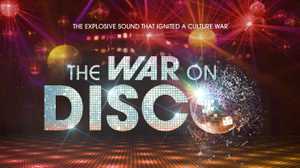
 The War on Disco
The War on Disco